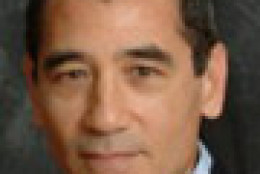Hubbard Radio Washington DC, LLC. All rights reserved. This website is not intended for users located within the European Economic Area.
Cybersecurity
-
Chairman Tom Wheeler said he wants to build on the initial success of the critical infrastructure cybersecurity framework released by the White House in February. He said it's not a matter of new regulations, but creating a joint approach to improving the network security across the entire communications sector. Rep. Mike Rogers (R-Mich.) renews hope for Congress to pass information sharing legislation this year.
June 13, 2014 -
The Pentagon says the Chinese military threat is growing because China steals intellectual property from the United States in giant quantities. DoD's new congressional report on China details violations of U.S. copyright and export laws by Chinese intelligence programs stealing national security technology. Gordon Chang, a contributor to Forbes.com, writes their New Asia column.
June 09, 2014 -
The National Institute of Standards and Technology gives agencies guidance for continuing the transition to a real-time, dynamic cybersecurity.
June 06, 2014 -
A new survey by TechAmerica and Grant Thornton found many agency chief information officers continue to spend too much on legacy systems and don't have money to develop or modernize new software or applications. But tools such as PortfolioStat are making a difference in helping senior IT managers understand and have a say in where money is spent in their agency.
June 06, 2014 -
The Department of Defense recognizes that it and American companies are prime targets for hackers, whether they be a nation-state or individuals. So it's put in place an operating strategy. That strategy is comprised of 5 elements: 1) a defensible architecture; 2) global situational awareness and a common operating picture; 3) a concept for operating in cyberspace; 4) trained and ready cyber forces; and 5) capacity to take action when authorized.
June 05, 2014 -
USCYBERCOM, according to testimony before Congress, is working on several elements to defend against cyber attacks. Those elements include tactics, techniques, and procedures, as well as policies and organizations. Officials say that also means turning plans into doctrine and training - and building a system that our Combatant Commanders can think, plan, and integrate cyber capabilities as they would capabilities in the air, land and sea domains. Cyber is different from all of them because it's mostly invisible.
June 05, 2014 -
A computer hacker facing up to 20 years in prison is free after helping the federal government stop hundreds of cyberattacks. He taught agencies how to protect millions of dollars and cripple the hacker group Anonymous. Retired Air Force Maj. Gen. Dale Meyerrose was chief information officer for three Air Force commands and three joint combatant commands. He was also the first CIO of the Office of the Director of National Intelligence and is now president of the Meyerrose Group. He joined In Depth with Francis Rose to explain what kind of precedence this sets for future cybersecurity policies.
June 02, 2014 -
Maryland has declared itself the epicenter of cybersecurity. At least Sen. Barbara Mikulski (D-Md.) has. She helped establish the Maryland Cybersecurity Roundtable. That move was recommended by the Federal Facilities Advisory Board last year. Tom and Emily spoke with Len Moodispaw on the Federal Drive. He's CEO of KEYW Corporation and President of the newly-formed Maryland Cybersecurity Roundtable.
June 02, 2014 -
The comply-to-connect initiative is about removing much of the people challenges by automating the software patching and updating the cyber processes in real time.
May 30, 2014 -
The 2013 FISMA report to Congress shows the Veterans Affairs Department continues to struggle with cybersecurity and has more than 6,000 items on its plans of actions and milestones and continued weaknesses in access and configuration management controls. VA CIO Stephen Warren details several initiatives to address many of the 35 recommendations.
May 30, 2014 -
Rob Carey, who recently retired after 31 years in government, said the government must focus on identity management and information assurance as computer threats become more complex and sustained.
May 29, 2014 -
Under the continuous diagnostics and mitigation program, DHS wants to ensure systems administrators have data on the most pressing threats and vulnerabilities first so they can fix them as soon as possible. John Streufert, DHS's director of federal network resilience, said the recently-awarded dashboard will be set up to do just that.
May 29, 2014 -
Under a construct that's still under discussion, the Defense Information Systems Agency would take charge of some portion of DoD's cyber defenses under a new Joint Force Headquarters.
May 29, 2014 -
You are the key to stopping an insider threat and preventing a cyber incident at your agency even if you don't work in the IT department. Richard Stiennon is the host of the Security Current blog, the founder of IT Harvest and the author of Surviving Cyberwar. He says there are two categories of insider threats and identifying the most dangerous kind depends on you.
May 28, 2014







